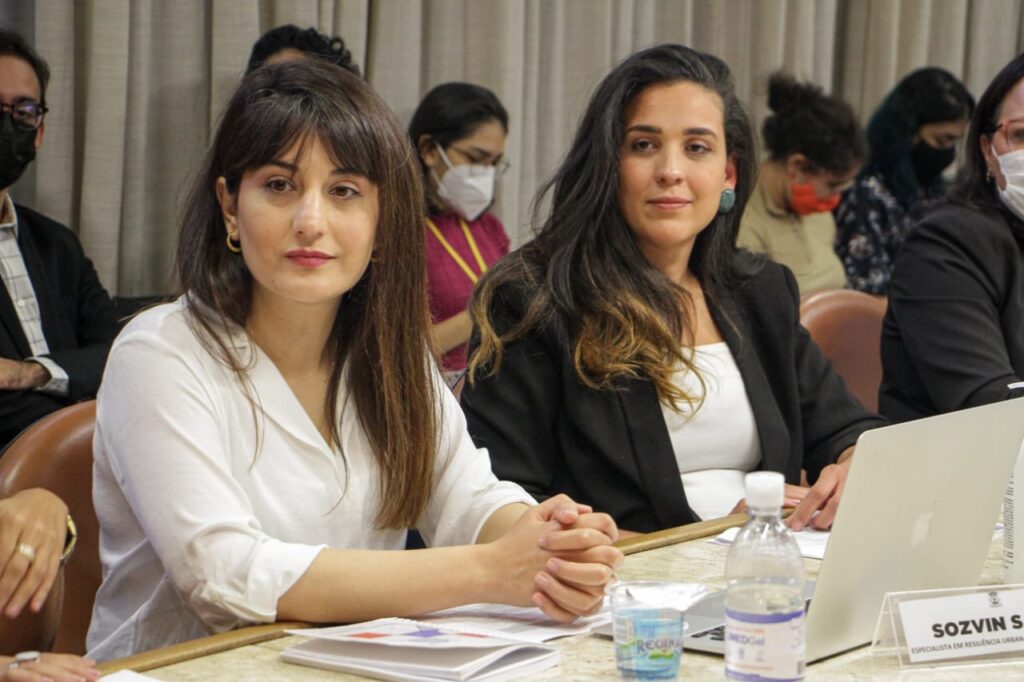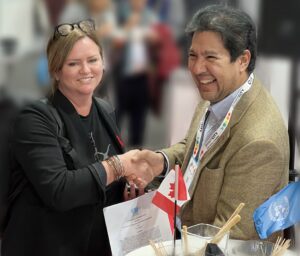Teresina is located in the Northeast region of Brazil, the poorest region in the country and one of the most vulnerable regions to climate change in the world. In the last century, the average temperature of the city increased by over 2 degrees Celsius-a rate above the global 1°C average. Within this context, Teresina faces overlapping social and environmental vulnerabilities due to extreme heat and deep economic inequalities.
An accelerated urban growth that resulted in deficient infrastructure, high motorization rate, poor institutional and fiscal capacity, inequity, high unemployment rates, informality, and violence are some of the issues that add to the reality of the Latin-American city. These chronic stresses to the urban system increase Teresina’s vulnerability to natural hazards, undermine sustainability and reduce the quality of life of its inhabitants.
Aiming to make informed decisions and scale local action for resilience and sustainable development, the Government of Brazil and the United Nations Program for Human Settlements signed a Cooperation Agreement to implement the Teresina Urban Resilience Program in 2019. Through this agreement, for 2 years, The Municipality of Teresina, through the Teresina 2030 Agenda coordination -part of the Municipal Planning and Coordination Department (Semplan)- and UN-Habitat’s City Resilience Global Programme, worked together on building technical capacity for urban resilience in the Municipality and produce a strategic action plan for the city, called Recommendations on Actions for Resilience and Sustainability.
UN-Habitat’s team is in the final and closing mission of the project, presenting to the local and regional government and other urban actors the evidence-based recommended actions for resilience and sustainability designed to be incorporated into current urban development strategies and management processes of the city. The mission began on Tuesday, 26 and ends today, April 28.
The presentation of the Recommendations of Actions for Resilience has three aims:
- To better inform the Municipality and its stakeholders of the city’s current state regarding resilience and ongoing related trends, based on conclusions derived from the City Resilience Profiling Tool implementation of the previous phases.
- Present the set of activities and actions that should guide the municipal public policies in response to the priority issues identified during the process.
- Support the integration and mobilization of the multiple actors involved at a national, regional and local level for efficient governance.
The past two years of collaboration have been a resilient process in itself. The programme’s implementation during the pandemic had to overcome internal changes in the administration of Teresina and several climate emergencies. This adds to the success of the Project and the mission, which has allowed the team to present the technical results while bringing all stakeholders closer by creating awareness of the reality of the city and urgency for action. All attendees are manifesting interest in supporting the application of the Recommended Actions. As stated by Gisele Oliveira, the superintendent of Strategic and Territorial Planning of Seplan:
The Government of Piauí has every interest in aligning efforts with UN-Habitat and with the project being developed by the Municipality of Teresina to leverage the territorial development in a sustainable and resilient way. We will articulate with government agencies to incorporate the recommended actions into current and future policies.












